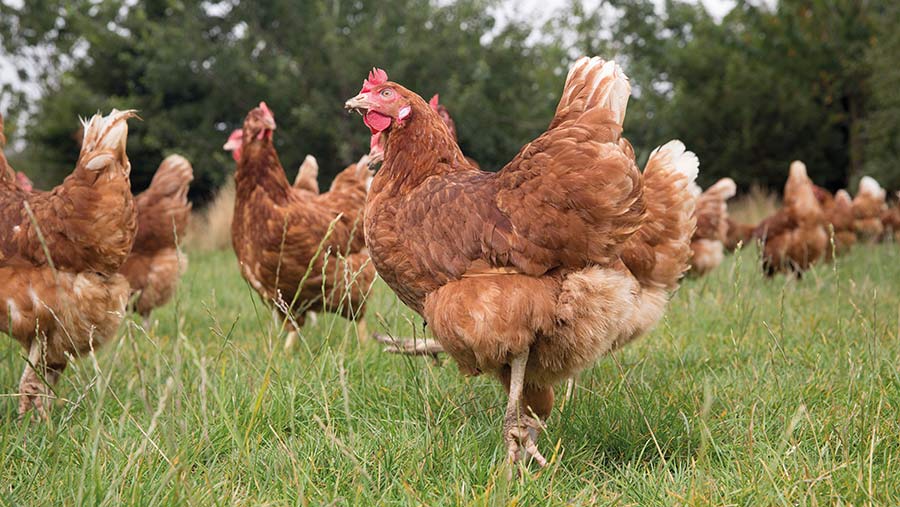Poultry housing order for free-range birds to lift from 2 May
 © Tim Scrivener
© Tim Scrivener Free-range poultry, which have been compulsorily housed since late November to protect them from avian influenza, will be allowed outside again from next Monday (2 May), the government has confirmed.
A statement from the UK’s chief veterinary officers said that, “thanks to the hard work of all birdkeepers and vets, who have played their part in keeping flocks safe this winter”, it is now possible to relax this particular measure.
See also: Find all our poultry content in one place
However, with avian influenza still in circulation in the UK, the Avian Influenza Prevention Zone remains in force, meaning all poultrykeepers will have to maintain enhanced biosecurity.
“While the lifting of the mandatory housing measures will be welcome news to birdkeepers, scrupulous biosecurity remains the most critical form of defence to help keep your birds safe,” said a joint statement from the four chief vets.
Key biosecurity actions include:
- Cleansing and disinfecting equipment, clothing and vehicles
- Limiting access to non-essential people on poultry sites
- Workers changing clothing and footwear when entering and leaving bird enclosures.
“Those who intend to allow their birds outside are advised to use the upcoming days to prepare their outside areas for the release of their birds,” said the vets’ statement.
“This will include cleansing and disinfection of hard surfaces, fencing off ponds or standing water, and reintroduction of wild bird deterrents.”
The most recent case of highly pathogenic H5N1 avian influenza was confirmed on 22 April 2022 in poultry at a premises near Ilkeston, Derbyshire.
In total, there have been more than 100 cases across the UK in what is the country’s worst ever outbreak of the disease.
Laying birds have been kept indoors since 29 November and, on 21 March, the 16-week period of restriction was passed, after which their eggs lost their free-range status and have had to be marketed as “barn eggs”.
Enhanced biosecurity measures for all birdkeepers
- Cleanse and disinfect clothing, footwear, equipment and vehicles before and after contact with poultry and captive birds
- Reduce the movement of people, vehicles or equipment to and from areas where poultry and captive birds are kept, to minimise contamination from manure, slurry and other products
- Thoroughly cleanse and disinfect housing on a continuous basis, and use effective vermin control
- Keep fresh disinfectant at the right concentration at all farm and poultry housing entry and exit points
- Minimise direct and indirect contact between poultry and captive birds and wild birds, including making sure all feed and water is not accessible to wild birds
Notifiable disease
Birdkeepers should report any suspicion of avian influenza.
- In England – Defra Rural Services Helpline on 03000 200 301
- In Wales – 0300 303 8268.
- In Scotland – contact your local Field Services Office
- In Northern Ireland – Daera on 0300 200 7840 or your local Daera Direct Regional Office
